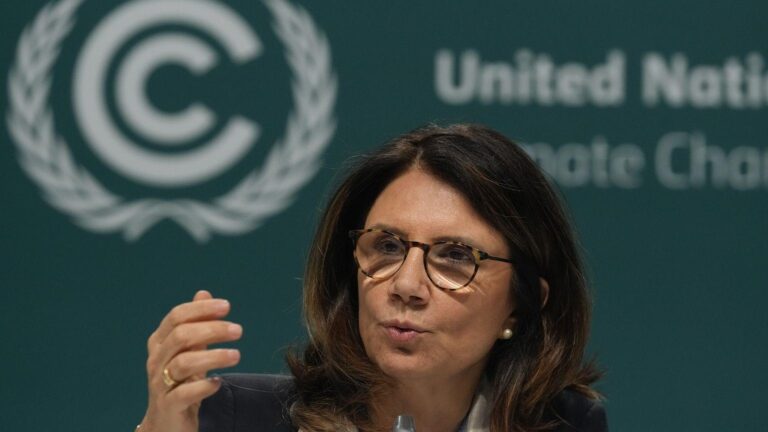Brazil is reportedly in advanced discussions with global investment firms TPG and Brookfield to secure a $4 billion financing package aimed at bolstering the country’s climate initiatives. Sources familiar with the matter told Reuters that the proposed deal represents a significant step in Brazil’s efforts to attract private capital to support environmental projects and sustainable development. The talks come amid increasing international pressure on Brazil to address deforestation and carbon emissions, as the nation seeks innovative solutions to meet its climate goals.
Brazil’s Strategic Climate Finance Talks with TPG and Brookfield Signal Major Investment Shift
Brazil is currently navigating high-stakes discussions with global private equity giants TPG and Brookfield as it seeks to mobilize over $4 billion in climate finance. This strategic move represents a pivotal shift in the nation’s approach to sustainable development, aiming to leverage private sector capital to fund green infrastructure and climate resilience projects. Both firms bring extensive experience in environmental investments, signaling a significant endorsement of Brazil’s potential as a hub for climate-driven economic transformation.
The deal under consideration includes potential investments in:
- Renewable energy projects emphasizing wind and solar power expansion.
- Reforestation and carbon credit initiatives designed to reduce emissions in the Amazon basin.
- Infrastructure upgrades to improve energy efficiency across critical sectors.
| Investment Focus | Estimated Allocation | Key Objectives |
|---|---|---|
| Renewable Energy | $1.8 billion | Expand clean energy capacity |
| Reforestation | $1.2 billion | Carbon capture & biodiversity |
| Green Infrastructure | $1 billion | Energy efficiency improvements |
| Contingency & Innovation | $0.1 billion | Adaptive technologies |
If finalized, this partnership will not only inject much-needed capital but also elevate Brazil’s global stature in climate finance markets, setting a precedent for other emerging economies. Stakeholders will be watching closely as the discussions progress, keen to see how this blend of public ambition and private capital materializes into tangible climate action.
Implications of the 4 Billion Dollar Climate Funding for Brazil’s Green Energy Sector
The injection of $4 billion into Brazil’s green energy sector marks a pivotal moment, signaling a robust commitment towards accelerating the country’s transition to sustainable power sources. This scale of finance is expected to catalyze significant expansion in renewable energy projects such as solar, wind, and bioenergy, addressing Brazil’s growing energy demands while pushing it closer to its climate goals. For investors like TPG and Brookfield, such involvement not only represents a strategic entry into one of Latin America’s most promising green markets but also paves the way for cutting-edge infrastructure development and innovation.
Beyond project funding, the capital boost is likely to spark broader economic benefits, including job creation and technological advancements within the energy sector. Key implications include:
- Enhanced grid stability: Investments in energy storage and smart grid technologies to optimize renewable integration.
- Regional development: Strengthening local economies by fostering green job opportunities and supply chains in underdeveloped areas.
- Environmental impact: Accelerated reduction of carbon emissions aligned with Brazil’s commitments under international climate accords.
| Sector Focus | Expected Investment ($ Billions) | Key Outcome |
|---|---|---|
| Solar Power | 1.5 | Expansion of photovoltaic farms |
| Wind Energy | 1.2 | Offshore and onshore capacity increase |
| Bioenergy | 0.8 | Development of sustainable biofuel plants |
| Energy Storage | 0.5 | Improved grid reliability and load balancing |
Key Recommendations for Ensuring Transparency and Sustainability in Climate Finance Agreements
To safeguard the effectiveness of climate finance agreements, it is essential to emphasize clear accountability mechanisms that track fund allocation and project outcomes. Transparency must extend from the initial financing stage through implementation, incorporating publicly accessible reports and real-time data sharing platforms. Empowering local communities and stakeholders by involving them in decision-making processes enhances legitimacy and ensures investments align with on-the-ground realities. Moreover, independent audits and third-party evaluations should be standard practice to verify environmental and social impacts, preventing greenwashing while promoting trust among investors and beneficiaries alike.
Equally crucial is embedding sustainability as a core principle beyond carbon metrics. This requires structuring agreements around holistic criteria that include biodiversity preservation, social equity, and long-term economic resilience. Simple tools like impact scorecards or sustainability checklists can help operationalize these criteria, fostering consistency and comparability across projects. The table below highlights key elements recommended for transparency and sustainability in climate finance frameworks:
| Key Element | Purpose | Best Practice | |||||||||
|---|---|---|---|---|---|---|---|---|---|---|---|
| Real-Time Reporting | Enhances visibility of fund usage | Open-access dashboards | |||||||||
| Stakeholder Participation | Aligns projects with local needs | Community consultation forums | |||||||||
| Independent Audits |
To safeguard the effectiveness of climate finance agreements, it is essential to emphasize clear accountability mechanisms that track fund allocation and project outcomes. Transparency must extend from the initial financing stage through implementation, incorporating publicly accessible reports and real-time data sharing platforms. Empowering local communities and stakeholders by involving them in decision-making processes enhances legitimacy and ensures investments align with on-the-ground realities. Moreover, independent audits and third-party evaluations should be standard practice to verify environmental and social impacts, preventing greenwashing while promoting trust among investors and beneficiaries alike. Equally crucial is embedding sustainability as a core principle beyond carbon metrics. This requires structuring agreements around holistic criteria that include biodiversity preservation, social equity, and long-term economic resilience. Simple tools like impact scorecards or sustainability checklists can help operationalize these criteria, fostering consistency and comparability across projects. The table below highlights key elements recommended for transparency and sustainability in climate finance frameworks:
|




